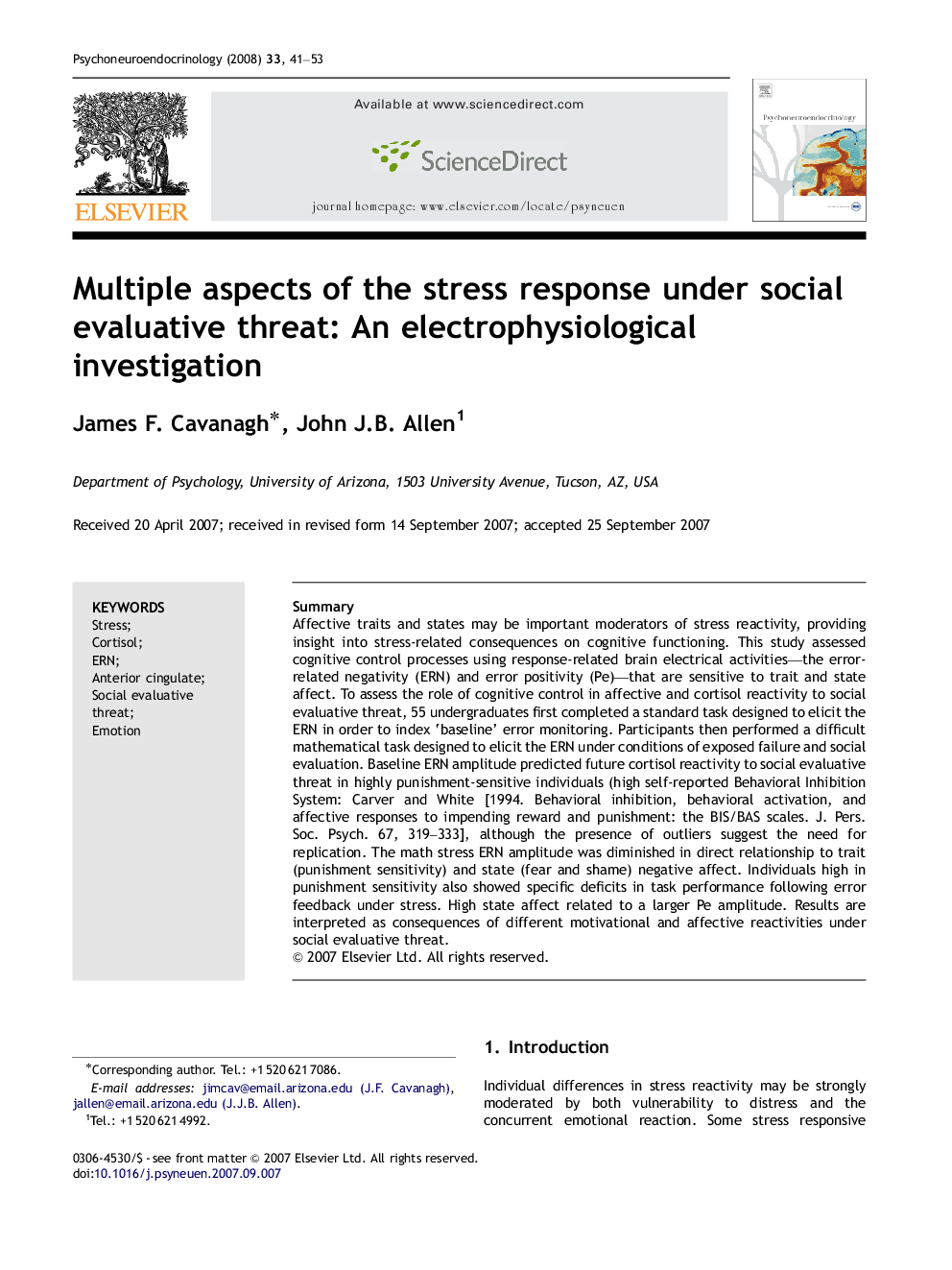| Article ID | Journal | Published Year | Pages | File Type |
|---|---|---|---|---|
| 336381 | Psychoneuroendocrinology | 2008 | 13 Pages |
SummaryAffective traits and states may be important moderators of stress reactivity, providing insight into stress-related consequences on cognitive functioning. This study assessed cognitive control processes using response-related brain electrical activities—the error-related negativity (ERN) and error positivity (Pe)—that are sensitive to trait and state affect. To assess the role of cognitive control in affective and cortisol reactivity to social evaluative threat, 55 undergraduates first completed a standard task designed to elicit the ERN in order to index ‘baseline’ error monitoring. Participants then performed a difficult mathematical task designed to elicit the ERN under conditions of exposed failure and social evaluation. Baseline ERN amplitude predicted future cortisol reactivity to social evaluative threat in highly punishment-sensitive individuals (high self-reported Behavioral Inhibition System: Carver and White [1994. Behavioral inhibition, behavioral activation, and affective responses to impending reward and punishment: the BIS/BAS scales. J. Pers. Soc. Psych. 67, 319–333], although the presence of outliers suggest the need for replication. The math stress ERN amplitude was diminished in direct relationship to trait (punishment sensitivity) and state (fear and shame) negative affect. Individuals high in punishment sensitivity also showed specific deficits in task performance following error feedback under stress. High state affect related to a larger Pe amplitude. Results are interpreted as consequences of different motivational and affective reactivities under social evaluative threat.
